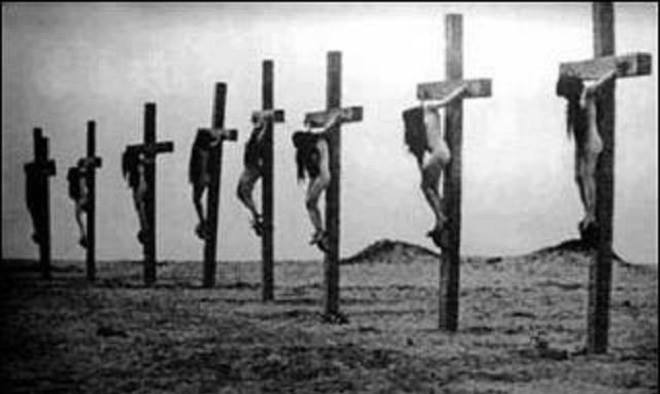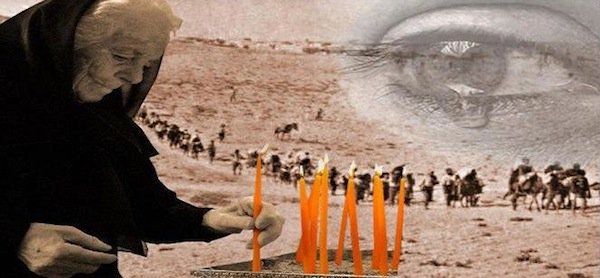
Views: 1960
For several decades, the Turkish government and its propagandists have been announcing that the state documents, particularly the Ottoman archives, are fully open and available to any researcher from around the world.
What Turkish officials and their supporters do not say is that many documents of the Ottoman archives have been removed, destroyed, sold, or otherwise disposed of. In addition, some of the most sensitive archives are still closed to outsiders.
Last month, Turkish journalist Uzay Bulut wrote a revealing article, “Turkey Uncensored: A History of Censorship and Bans,” published on the Philos Project website, regarding the status of Turkish archives and documents going back several centuries. Bulut is free to expose such secrets because she no longer lives in Turkey; she is currently based in Washington D.C.
In Turkey today, Wikipedia’s website is blocked by governmental order because Wikipedia refused to delete articles revealing that the Turkish authorities are supporting the Islamic State terrorists. Furthermore, 127,000 websites and 95,000 individual Web pages are blocked by Turkey, according to Bulut.
 This modern-day banning of thousands of websites is the continuation of Ottoman Sultan Bayazid II’s decree of 1485 A.D. imposing the death penalty on anyone printing books in Turkish or Arabic. The ban remained for more than two centuries, Bulut reported. “That prohibition is widely cited by historians as one of the major reasons for the intellectual and scientific collapse of Islam at the dawn of the industrial revolution.”
This modern-day banning of thousands of websites is the continuation of Ottoman Sultan Bayazid II’s decree of 1485 A.D. imposing the death penalty on anyone printing books in Turkish or Arabic. The ban remained for more than two centuries, Bulut reported. “That prohibition is widely cited by historians as one of the major reasons for the intellectual and scientific collapse of Islam at the dawn of the industrial revolution.”
The Turkish Republic, during the rule of its founder Kemal Ataturk as of 1923, continued the tradition of censorship by banning “at least 130 newspapers, magazines and books, according to Mustafa Yilmaz and Yasmin Doganer’s book, Censor During the Republican era (1923-1973).” Turkey’s second Prime Minister (1950-1960), Adnan Menderes, banned 161 publications, according to Bulut.
Returning to archival censorship, Bulut quoted Turkish-Jewish historian Rifat Bali, who “explained the history of disposed or destroyed state archives in his 2014 book, The Story of Destruction of Plundering: Printed or Written words, Dead Letters, Archives Thrown Out (or Sold) for Scrap.… The archives of many political parties, the Senate, and several other governmental or nongovernmental institutions in Turkey are either closed to public use or no longer exist.” According to Bali, “the archives of the political parties closed down during the September 12, 1980 coup d’état were sent to SEKA (Cellulose and Paper Factories) as scrap paper.”
The Republican People’s Party’s (CHP) archive is the most important one because it is the party of the founding years of the Republic. As Bali wrote: “Some say it [the archive] was burnt. Some say it was thrown away on September 12. Some say no, it hasn’t been thrown away; it is here. So it is a mystery today. A large part of the archive is nonexistent.”
In addition, Bali reported that “the archives of the presidency, the National Intelligence Organization (MIT) and the Ministry of the Interior are closed.” Interestingly, Bali noted the strange story of how “confidential documents of the Ministry of Foreign Affairs were found at a scrap dealer in Ankara in 1998. For the ministry had sold 15 steel safes to a scrap dealer. It was then understood that the ministry sold the safes because of a lack of space at the ministry without even looking what was inside them.”
Bali also reported in his book several other examples of the destruction of important documents:
- “Many of the Turkish Institute of History’s documents—including a letter by Ataturk—have been thrown away.”
- “All minutes of the proceedings of the Senate that was established with the 1961 constitution and remained active until the September 12, 1980 coup d’état were sent to the Cellulose and Paper Factories (SEKA).”
- “When the state-funded Presidency of Religious Affairs (Diyanet) moved to a new building in 1965, its authorities said that ‘old documents do not fit a new building’ and sent some of the documents of the archives to SEKA.”
- “When a shortage of paper emerged at SEKA in 1980s, state institutions were called on to send their old papers to the factory. Many archives at institutional level were thus gone.”
- As recently as 2013, Turkish National Library’s old books in Greek, Hebrew, and Syriac were sold by the ton, “as there were no librarians who could read in those languages.”
As an investigative journalist, Bulut concluded: “With so much information withheld from the Turkish public, state propaganda has created masses who blindly follow whatever state authorities—who have lost their moral compass and never object or speak out even when they see brutal violations of human rights, who do not respect differing opinions or the right to dissent, and who promote an extremely inaccurate version of history—have to say.”
The next time Turkish government propagandists write “our archives are open,” you can send them a copy of this article, the revelations of which from distinguished Turkish journalist Bulut will shut them up!
Originally published on 2017-10-03
About the author: Harut Sassounian is the publisher of The California Courier, a weekly newspaper based in Glendale, Calif. He is the president of the United Armenian Fund, a coalition of the seven largest Armenian-American organizations. He has been decorated by the president and prime minister of the Republic of Armenia, and the heads of the Armenian Apostolic and Catholic churches. He is also the recipient of the Ellis Island Medal of Honor.
Source: The Armenian Weekly
Origins of images: Facebook, Twitter, Wikimedia, Wikipedia, Flickr, Google, Imageinjection, Public Domain & Pinterest.
Read our Disclaimer/Legal Statement!
Donate to Support Us
We would like to ask you to consider a small donation to help our team keep working. We accept no advertising and rely only on you, our readers, to keep us digging the truth on history, global politics and international relations.
[wpedon id=”4696″ align=”left”]
FOLLOW US ON OUR SOCIAL PLATFORMS









